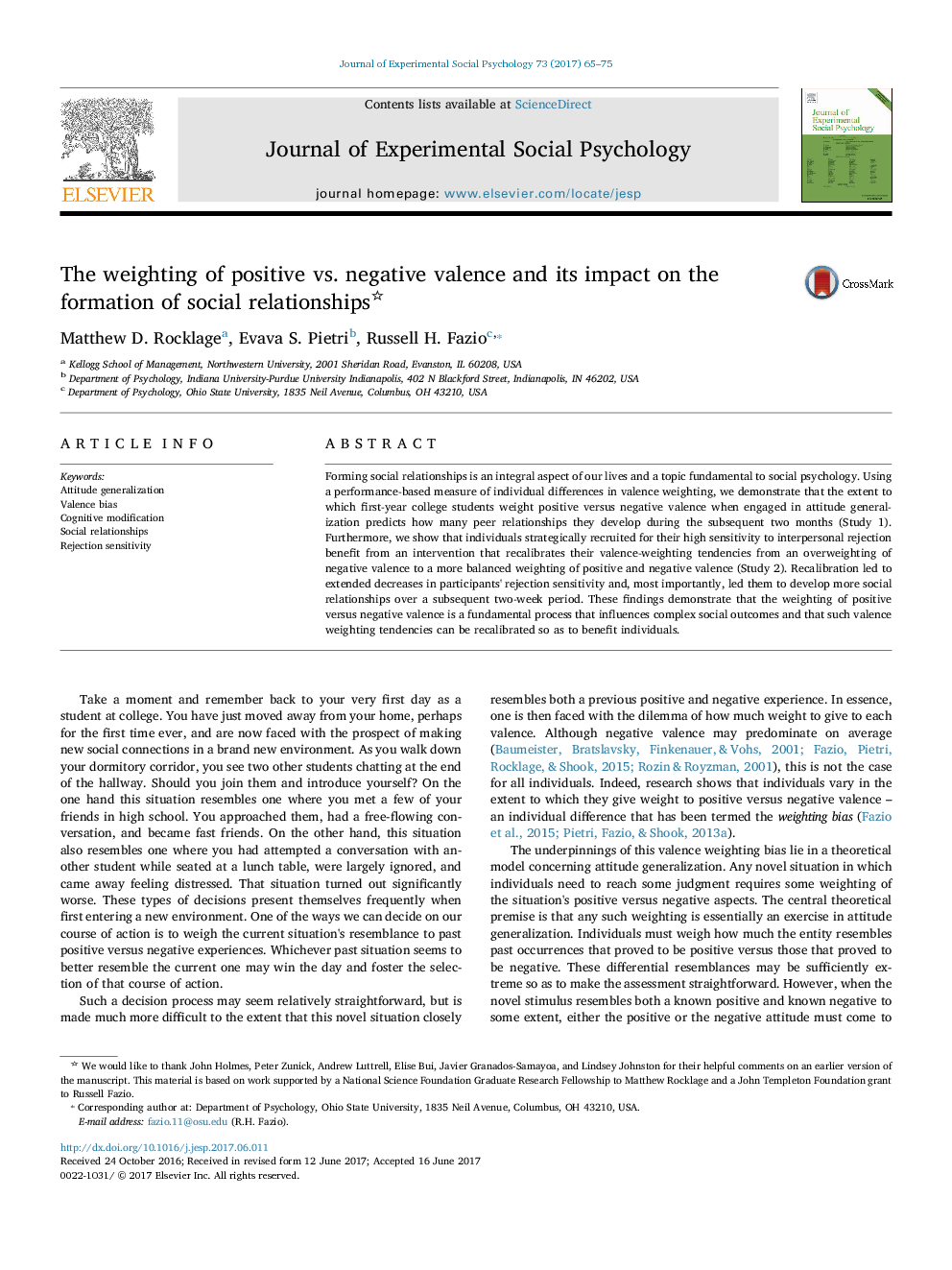ترجمه فارسی عنوان مقاله
وزن مثبت و منفی و تاثیر آن در شکل گیری روابط اجتماعی
عنوان انگلیسی
The weighting of positive vs. negative valence and its impact on the formation of social relationships
| کد مقاله | سال انتشار | تعداد صفحات مقاله انگلیسی |
|---|---|---|
| 124683 | 2017 | 11 صفحه PDF |
منبع

Publisher : Elsevier - Science Direct (الزویر - ساینس دایرکت)
Journal : Journal of Experimental Social Psychology, Volume 73, November 2017, Pages 65-75
ترجمه چکیده
شکل گیری روابط اجتماعی یک جنبه جدایی ناپذیر از زندگی ما و یک موضوع اساسی در روانشناسی اجتماعی است. با استفاده از یک اندازه گیری مبتنی بر عملکرد از تفاوت های فردی در وزن بندی ارزش، ما نشان می دهد که میزان که دانشجویان سال اول دانشجویان وزن مثبت در برابر ارزش منفی در هنگام تعمیم نگرش وزن در پیشبرد چگونگی روابط همسالان آنها در طی دو ماه پس از آن افزایش وزن (مطالعه 1 ) علاوه بر این، ما نشان می دهیم افرادی که به لحاظ استراتژیک برای حساسیت بالا نسبت به عدم رضایت بین فردی از مداخله ای استفاده می کنند که گرایش های وزن خود را از اضافه وزن از ولنتاین منفی به مقادیر متعادلی ولنتاسیون مثبت و منفی محاسبه می کنند (مطالعه 2). مجددا احتماال منجر به کاهش شدت حساسیت ردگیری شرکت کنندگان شد و مهمتر از همه، باعث شد تا روابط اجتماعی بیشتری در طی دو هفته آینده ایجاد شود. این یافته ها نشان می دهد که وزن مثبت و منفی، یک فرایند اساسی است که بر پیامدهای اجتماعی پیچیده تأثیر می گذارد و گرایش های وزن دهی ارزشمند را می توان بازنگری کرد تا به نفع افراد باشد.

